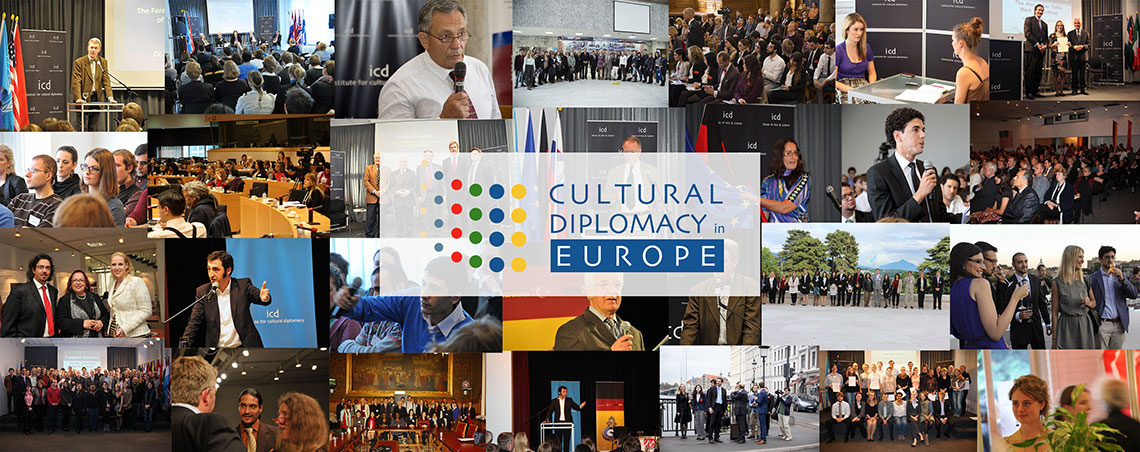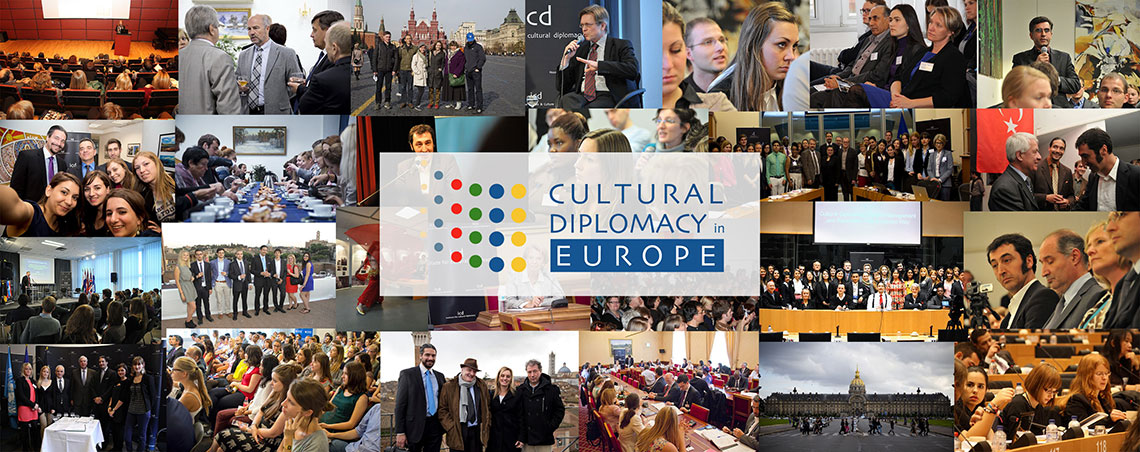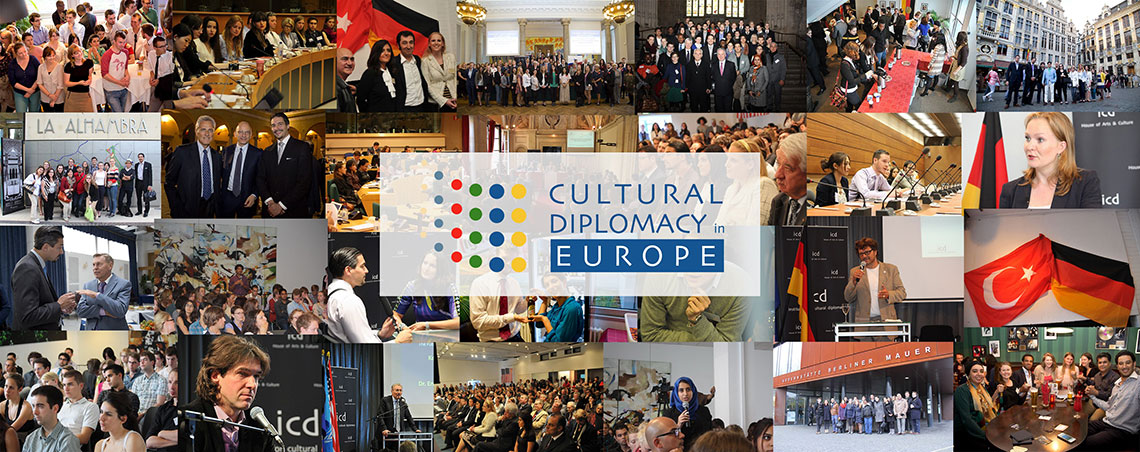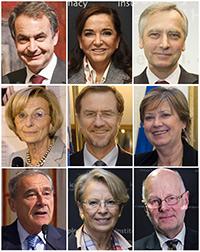Academy for Cultural Diplomacy
Cultural Diplomacy in Europe (CDE)
About the Program

Introduction to the Program
“The Cultural Diplomacy in Europe Program” was established by the Institute for Cultural Diplomacy to strengthen relations between cultural groups and countries within Europe, to improve relations between Europe and other regions, and to support Europe in playing a more influential, constructive role in addressing global challenges.Whilst there is ongoing discussion regarding the geographical reaches of “Europe”, there is widespread acceptance that the region has played a profound role in global affairs over the past 500 years. This influence remains strong today. Around 25% of the world’s total GDP comes from EU member states, despite comprising less than 10% of the world’s population. Two of the five permanent members of the United Nations Security Council are European, as are four of the world’s 7 largest economies. The establishment and growth of the European Union is widely acknowledged as a success, having laid a foundation for peaceful inter-state relations and economic growth. Indeed, the success of the European Union is best reflected in the desire for ever more countries to join.
Despite Europe’s prominent and success, however, the region faces a number of significant challenges. Economically, it has been hit hard by the global financial crisis, and recent Eurozone bailouts of Greece and Ireland have caused anxiety and disagreement between states. In political terms, the EU faces an uphill struggle if it is to speak “with one voice” as some member states desire and a majority acknowledge would be beneficial.
Europe is, and will remain, a key global player. In order for it to consolidate its political and economic influence at today’s levels, however, it must face difficult choices. It is in recognition of these challenges that the ICD has created the program Cultural Diplomacy in Europe.
Program Aims
Cultural Diplomacy in Europe pursues the following five specific aims:- To improve intercultural understanding between cultural groups and nation states at the grass roots level.
- To increase academic, artists, scientific, and cultural exchange between European countries.
- To improve economic, political, and cultural relations between Europe and other regions.
- To strengthen Europe’s capacity to promote human rights and generate consensus in the pursuit of global public goods.
Academic Themes
In recognition of the program aims outlined above, Cultural Diplomacy in Europe activity will address the following academic themes:- The future of the Euro and the economic stability of the Eurozone.
- Inter-state relations within Europe and ties between ‘old’ and ‘new’ Europe.
- The use of art, music, and sport, to promote stronger intercultural relations at the local and national levels.
- Economic migration between EU member states.
- Integration and immigration policies at the national and European levels.
- The establishment and shaping of national brands at the European level.
- Regional relations between Europe and the US, Latin America, Africa, and Asia.
- The future role of the EU in tackling climate change
- Europe’s role and responsibility in ensuring peace and stability abroad.
- The future of Europe’s economy and the emergence of a knowledge based society.
- The digital revolution and the evolution of the media in Europe.
- Active citizenship and the future of democracy within Europe.






